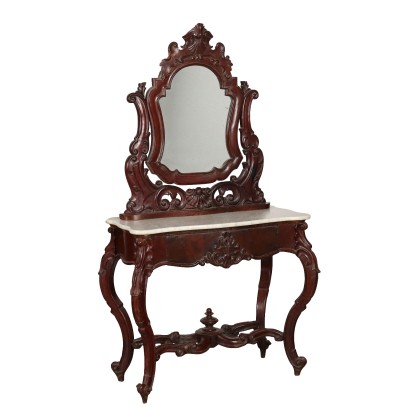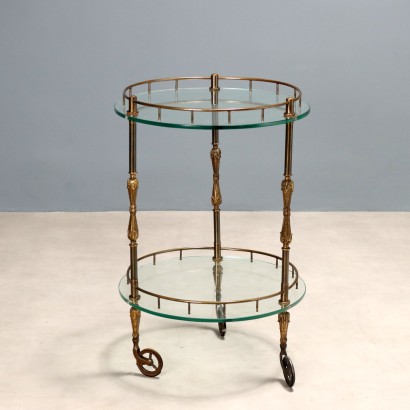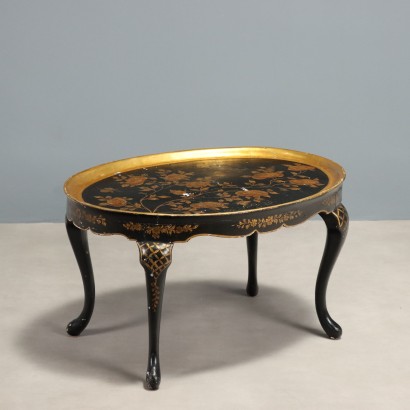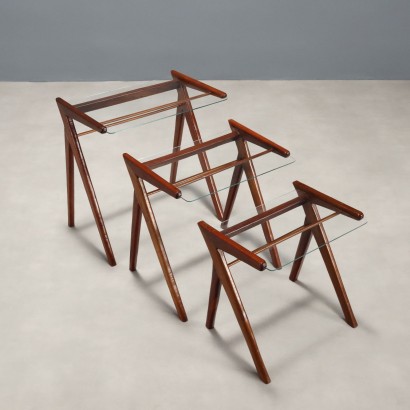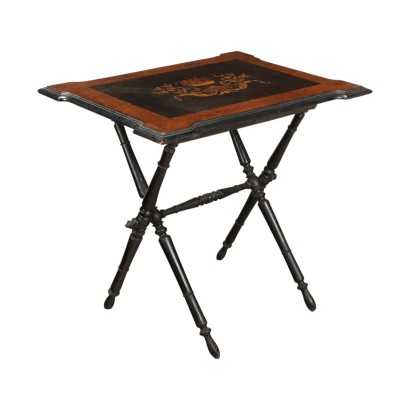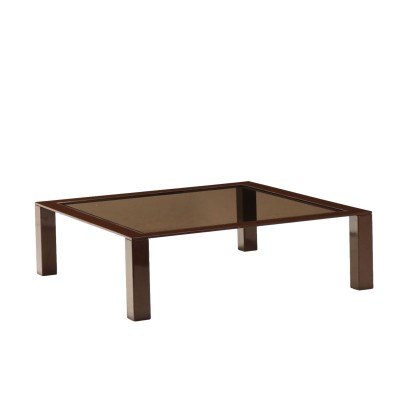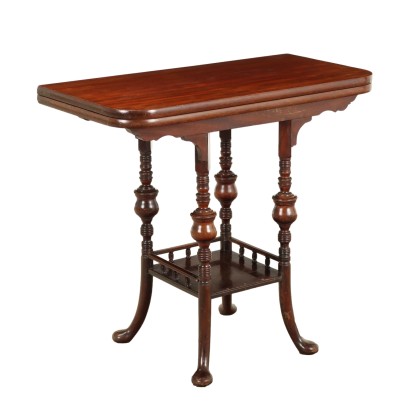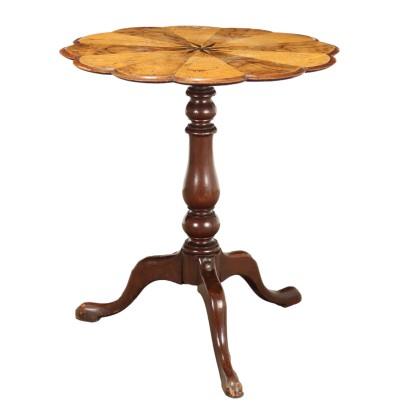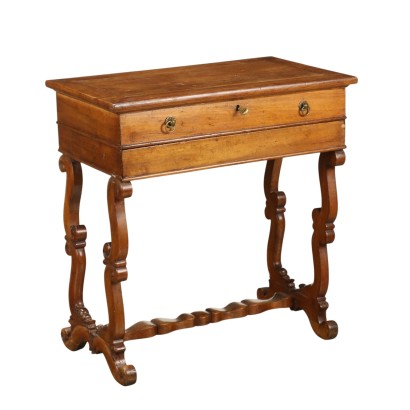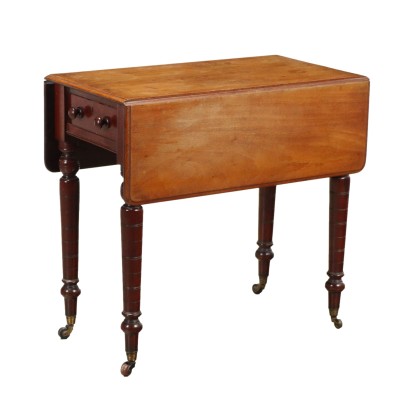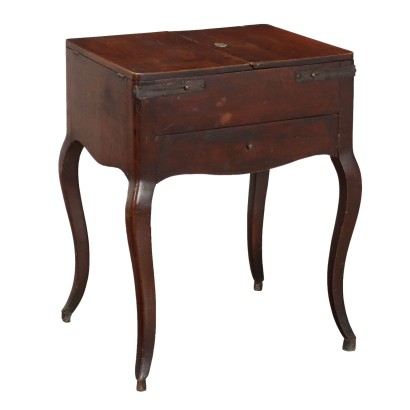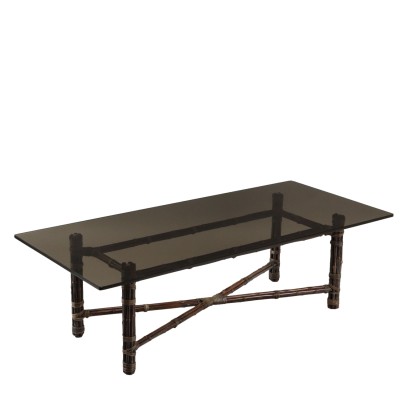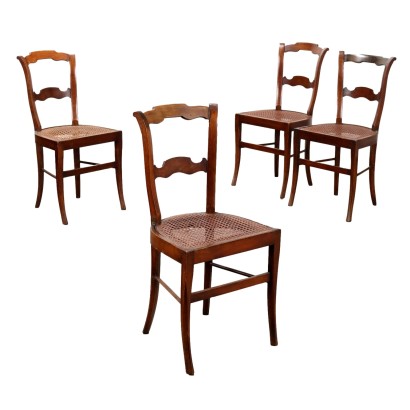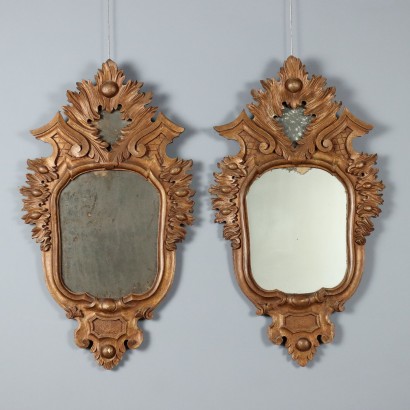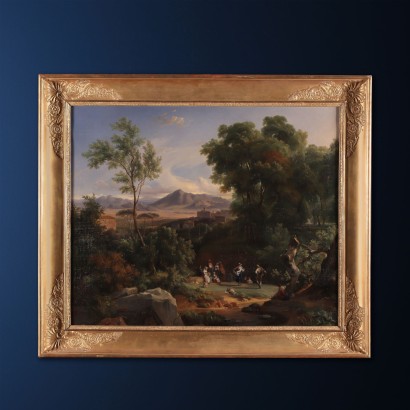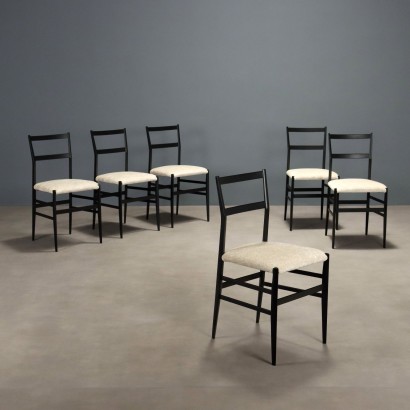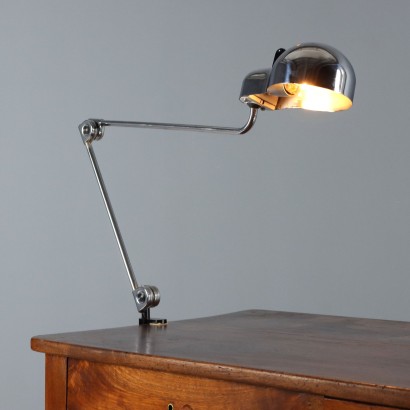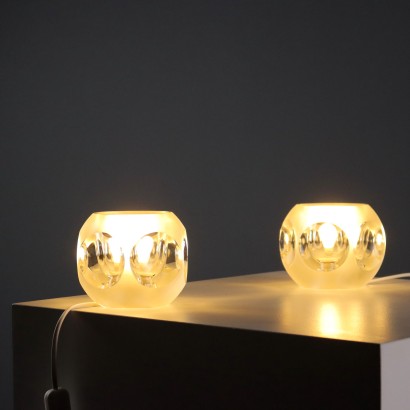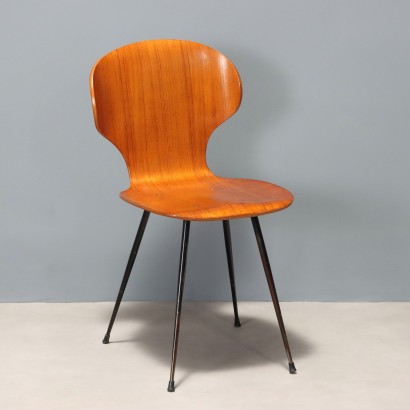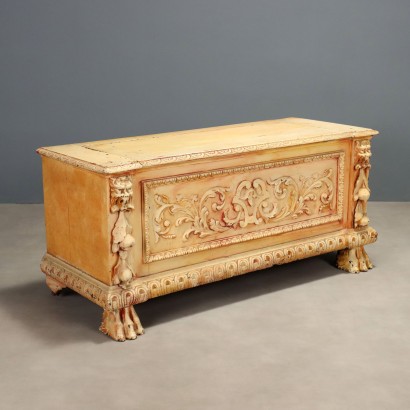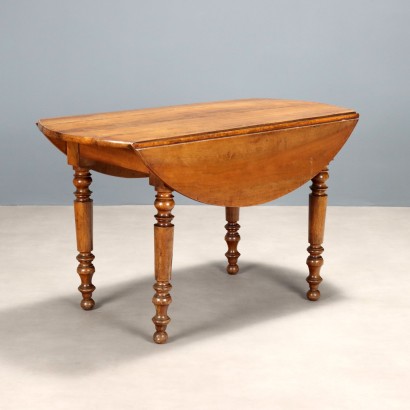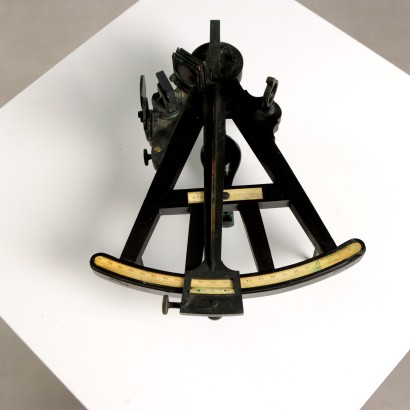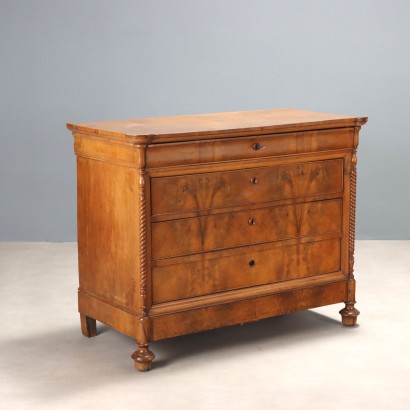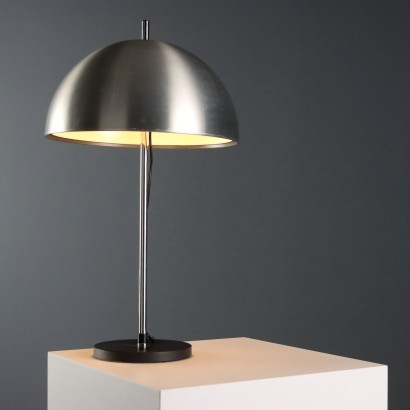Antique Louis Philippe Console with Mirror Mahogany XX Century - Naples, Mid XIX Century
Features
Naples, Mid XIX Century
Style: Louis Philippe (1830-1848)
Age: 19th Century / 1801 - 1900
Origin: Napoli, Campania, Italy
Main essence: Mahogany , Poplar
Material: Mahogany Slab , Carved Wood , White Marble , Mirror
Description
Console in mahogany and Louis Philippe mahogany slab with raised tilting mirror, Naples mid-19th century. Shaped white marble top, drawer in the band, legs connected by cross-piece. Richly carved with rocaille-style motifs, including curls, shells and leaf elements. Poplar interior.
Product Condition:
Product which due to age and wear requires restoration and re-polishing. We try to present the real state of the furniture as completely as possible with photos. If some details are not clear from the photos, what is stated in the description applies.
Dimensions (cm):
Height: 82
Width: 99
Depth: 50
Maximum size (cm):
Height: 175
Restoration options
Complete restoration
Trattamento antitarlo alle parti interne, incollaggio e spinatura traversi incrociati, incollaggio gambe anteriori crepate. Ricostruzione riccioli e foglie rotti e mancanti. Sistemazione del cassetto con revisione dello scorrimento e delle guide. Incollaggio intagli cassetto. Revisione spine di fissaggio alzata. Ripresa lucidatura/sverniciatura con stuccatura e lucidatura a gommalacca e finitura a cera. Chiave e serratura mancanti Rimozione della carta del cassetto e se l'interno é in buone condizioni poAdditional Information
Style: Louis Philippe (1830-1848)
The Louis Philippe style developed in a context characterized by two main factors: the expansion of the bourgeoisie and the advent of the industrialization of production processes.
This style therefore faces the decline of artisans and the new needs for economy and comfort.
Aesthetically, it takes elements from the past, especially from the Gothic and Renaissance, preferring very curved shapes for the backrests of the seats, roe deer legs and feet, with a very rich decoration.
It mainly uses dark woods: ebony, rosewood and mahogany, combined for contrast with light elements.
Find out more with our insights:
The Louis Philippe style
Classic Monday: Louis Philippe and Umbertina consoles compared
The Austrian taste of Baroque
History of Louis Philippe furniture
The Umbertino style
Antiques in Lombardy
The Evolution of the Empire Style
Age: 19th Century / 1801 - 1900
19th Century / 1801 - 1900Main essence:
Mahogany
It is one of the most precious and sought-after woods in cabinet making. It was discovered in Central America around 1600 and began to be imported to England in the 1700s. Much appreciated for its hardness and indestructibility, it became widespread following the blocking of walnut exports from France in 1720 and the consequent elimination of English import duties on mahogany from the colonies in America and India. The most valuable version comes from Cuba, but it became very expensive. At the end of the 18th century it began to be used also in France in Louis XVI, Directory and Empire furniture, its diffusion declined starting from when Napoleon, in 1810, forbade its import. It was generally used in the manufacture of elegant furniture, due to its characteristics and beautiful grain.Poplar
Essence considered "poor", it is a white wood, with yellowish or greyish shades, light and tender, which is easily damaged. It is used for rustic furniture or in the construction of furniture. The most valuable use it has had in the history of furniture is in Germany, in the 19th century, for veneers and inlays in the Biedermeier period.Material:
Mahogany Slab
Carved Wood
White Marble
Mirror
Other customers have searched:
Approfondimenti
Se ti interessano tavoli, tavolini, tavoli a vela, scrivanie, scrittoi e consolle dai un'occhiata ai nostri approfondimenti sul blog...L'antiquariato dalla A alla Z: il Dizionario dell'Antiquariato
Il dizionario dell'antiquariato - Lastronatura
Il dizionario dell'antiquariato - Mascherone
Il dizionario dell'antiquariato - Natura morta
Il dizionario dell'antiquariato - Opificio
Il dizionario dell'antiquariato - Pastiglia
Il dizionario dell'antiquariato - Savonarola
Il dizionario dell'antiquariato - Rosone
Intaglio barocco con motivo a ricciolo
Sui tavoli:
Il Neobarocco in un grande tavolo dell'800
Il Tavolo a fratino
Sui tavolini:
Breve storia dei tavolini
Un tavolino impero lombardo: segno di egemonia politica
Il tavolino da gioco, questo sconosciuto
Il dizionario dell'antiquariato – tavolino a Commesso
...e alle presentazioni su FineArt
Tavoli antichi:
Tavolo campionario lapideo, Roma, Opificio Raffaelli
Tavolo a vela, attribuibile a Luigi e Angiolo Falcini
Tavolo attribuibile a Luigi e Angiolo Falcini
Gueridon, Regno delle Due Sicilie, primo quarto XIX secolo
Tavoli modernariato e design:
Archivio Borsani, patrimonio di memorie e saperi
Tavolo anni '40 ABV
Tavolo Mario Vender Anni '60
Tavolo anni '50 ABV
Tavolo '522' Gianfranco Frattini per Bernini
Tavolo 'Barium' Luciano Frigerio
Tavolo anni '50, Manifattura Italiana
Tavolini antichi:
Coppia di tavolini Tomaso Buzzi, attribuiti
Tavolino da gioco, Bottega Giuseppe Maggiolini, inizi XIX secolo
Tavolini modernariato:
Tavolino anni '50
Tavolino anni '40 ABV
Product availability
The product can be seen at Milan
Immediate availability
Ready for delivery within 2 working days from ordering the product.

